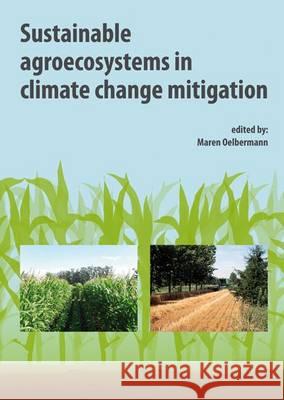Sustainable Agroecosystems in Climate Change Mitigation » książka
Sustainable Agroecosystems in Climate Change Mitigation
ISBN-13: 9789086862351 / Angielski
One of the challenges under current land management practices is to increase food and soil security to meet projected trends in food production, while maintaining the resilience to climate change. This book provides a forum for researchers to access the most recent developments in enhancing carbon sinks and minimizing greenhouse gas emissions. It suggests that policies and practices integrating microbial technology, modern crop cultivars, conservation practices, increased manure application, organic farming and agroforestry have a greater capacity to sequester carbon and reduce carbon-based greenhouse gases, leading to more robust agroecosystems compared to conventional agriculture. It is argued that empirical models can represent powerful tools for assessing how mitigation and adaptation strategies can be used to optimize crop yield and minimize greenhouse gas emissions under future climate change scenarios.'Sustainable agroecosystems in climate change mitigation' bridges our current knowledge gaps and recognizes the contribution of sustainable agricultural practices as a way forward in reducing the global carbon and nitrogen footprint. It is relevant for students, researchers, governmental and non-governmental organisations interested in climate change mitigation, sustainable agriculture, soil science, modern analytical techniques and modelling. It answers the questions: 'How can sustainable agroecosystems help mitigate climate change?' and 'What are the tools to achieve this goal?'











